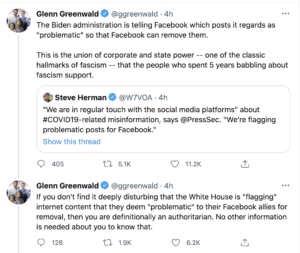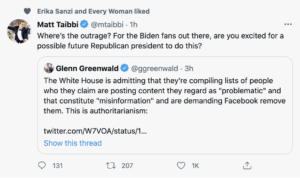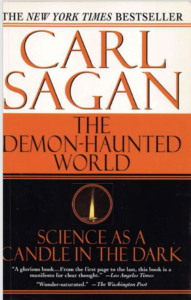The United States is Dictating to Facebook What We Can Say to Each Other
The U.S. government is providing a handy new service for us. We no longer need to worry about what to say and think! It is well-established, however, that the First Amendment prohibits the government from forcing private companies to censor.
I would like to think that the ACLU will file suit tomorrow to crush this obvious violation of the First Amendment, but I have no confidence that that will happen. And beware: Censorship is a potent narcotic that is difficult for governments to quit. Republicans are undoubtedly licking their chops now, waiting for their chance.



 programming, credulous presentations on pseudoscience and superstition, but especially a kind of celebration of ignorance. As I write, the number-one videocassette rental in America is the movie Dumb and Dumber. “Beavis and Butthead” remain popular (and influential) with young TV viewers. The plain lesson is that study and learning—not just of science, but of anything—are avoidable, even undesirable.
programming, credulous presentations on pseudoscience and superstition, but especially a kind of celebration of ignorance. As I write, the number-one videocassette rental in America is the movie Dumb and Dumber. “Beavis and Butthead” remain popular (and influential) with young TV viewers. The plain lesson is that study and learning—not just of science, but of anything—are avoidable, even undesirable.